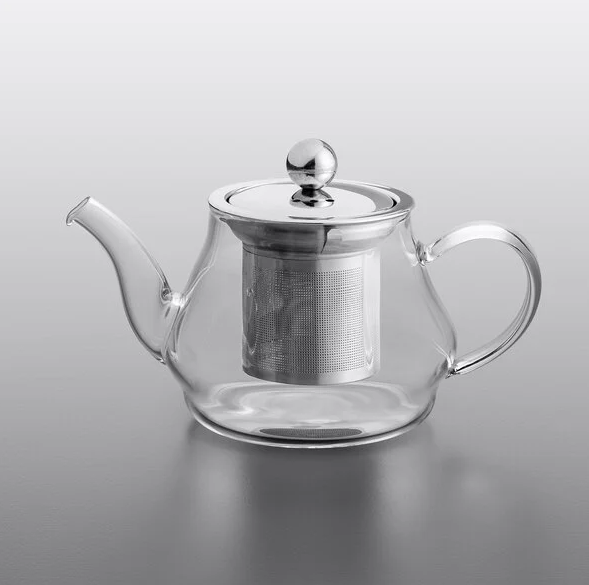What Science Says About Pu'erh Tea?
Pu’erh is one of those teas you either love or hate. This special category of tea has a very distinctive flavor and many proven benefits. Being a fermented tea, pu’erh is most commonly used for weight management, regulating cholesterol and blood sugar. What is pu’erh tea and what does science say about its benefits?
What is pu’erh tea?
Pu’erh tea belongs to a special category of dark fermented teas from Yunnan. There are two types of pu’erh tea, a traditional raw fermented tea, and ripened tea. Raw pu’erh tea leaves need proper storage and bacteria to develop into aged, fermented tea, while ripe pu’erhs are ready to drink immediately. In fact, aging will not change their composition. Because of very different chemical composition, pu’erh offers different benefits than other types of tea.Different types of pu’erh tea
We believe there is a pu’erh for everyone. Pu’erh is made from either special old pu’erh tea trees or from younger bushes on a plantation. Ripe pu’erh tea is made by artificial fermentation and it first appeared in 1973. Pu’erh comes in many shapes and flavors, from loose leaf to bricks, mushrooms, cakes and bird’s nests, some of them being extremely old.Pu’erh flavor
When choosing a good pu’erh it’s important to decide what kind of flavor you prefer. If you are not used to this tea, the flavor might be overwhelming, and in some poorly stored pu’erh teas, even unwelcome. Fresh unaged raw pu’erh might have a lot of bitterness, and ripe pu’erh from unknown sources and bad storages are sometimes described as teas with an unattractive “dead fish” flavor. If produced and stored properly, ripe pu’erh has a mild earthy and woody flavor.Benefits of drinking pu’erh
Although pu’erh might not be everyone's cup of tea, science made sure to back up many health claims about this extraordinary tea.1. Lowering triglyceride and helping lose weight
Pu’erh might be the best natural companion for losing weight, especially helping with obesity[1]. “Theabrownin (TB), polysaccharides, polyphenols, and statins, may down-regulate the biosynthesis of fat and up-regulate the oxidation of fat to cut weight and reduce the content of lipids in blood[2]”, making pu’erh a very good tea to support weight-loss goals. Pu’erh is often considered as the best tea after a heavy oily meal. It has the potential of treating constipation as well.[3]2. Lowering cholesterol
There might not be a better natural way to reduce bad cholesterol while keeping the levels of a good one intact, than drinking pu’erh tea. Gallic acid found in pu’erh is “related to the reduction of visceral fat and cholesterol contents[4].”3. Regulating blood sugar
Diabetes is a chronic disease that influences hundreds of million people in the world. Type 2 diabetes is characterized by high blood sugar levels and insulin resistance. A study published in Food & Function[5] in 2015 showed that pu’erh might help with lowering sugar levels, specifically in Type 2 diabetes.4. Anti-mutagenic and anti-cancer activity
Pu’erh might have a bright future in fighting cancer. Cancer is a major cause of millions of deaths worldwide. Unfortunately, up to this day, many cancers are still not curable, and some not even treatable. Pu’erh might be a good “anti-tumor agent with low side effects.[6]” When talking about specific cancers, in 2017 Chinese scientists showed that pu’erh could have a big impact on fighting breast cancer[7]. A study researching pu’erh and colon cancer cells showed that fermented pu’erh has a much better potential (85%) at fighting cancer cells than green tea (53%).[8]Is raw pu’erh better than ripe pu’erh?
Raw pu’erh is often much more expensive than ripe. In connoisseur’s circles, it’s considered superior to any type of ripe tea. However, this is mostly because of flavor profile, mellowness, tea material coming from very old trees and the fact a tea brick can be extremely old. In terms of benefits, “the higher cost of raw pu’erh tea does not seem to be justified by its antioxidant, anti-enzyme or antibacterial activity” and an “accelerated fermentation can be considered as a good alternative to produce low-cost pu’erh tea which retains most of the antioxidant and antimicrobial properties of long-fermented teas.”[9] Although some of these studies are only the beginning of a long journey to understanding pu’erh tea better, there is no doubt pu’erh is remarkable. We sourced our pu’erh from an organic farm, reducing the risk of unwanted chemicals, pesticides, and fertilizers in your cup.Disclaimer: Always consult your healthcare provider before including herbs into your diet, especially if you already have serious health problems. Although ingredients in teas are safe to consume, do not exceed daily dose recommendations. Read the ingredients carefully to avoid allergic reactions. Pregnant and breastfeeding women should pay extra attention to ingredients. Never try to self-cure any serious health problem on your own.[1]https://www.ncbi.nlm.nih.gov/pubmed/20641056 [2]https://www.researchgate.net/publication/230599703_The_mechanisms_of_weight-cutting_effect_in_Pu-erh_tea [3]https://shop.simplelooseleaf.com/products/2-puerh [4]https://www.sciencedirect.com/science/article/pii/S0271531711000923 [5]https://pubs.rsc.org/en/Content/ArticleLanding/2015/FO/c4fo01025f#!divAbstract [6]https://www.ncbi.nlm.nih.gov/pmc/articles/PMC3233424/ [7]https://www.frontiersin.org/articles/10.3389/fphar.2017.00190/full [8]https://www.researchgate.net/publication/260440723_Fermented_Pu-erh_Tea_Increases_In_Vitro_Anticancer_Activities_in_HT-29_Cells_and_Has_Antiangiogenetic_Effects_on_HUVECs [9]https://www.mdpi.com/1420-3049/24/3/473/htm
More from:
SLL




Leave a comment